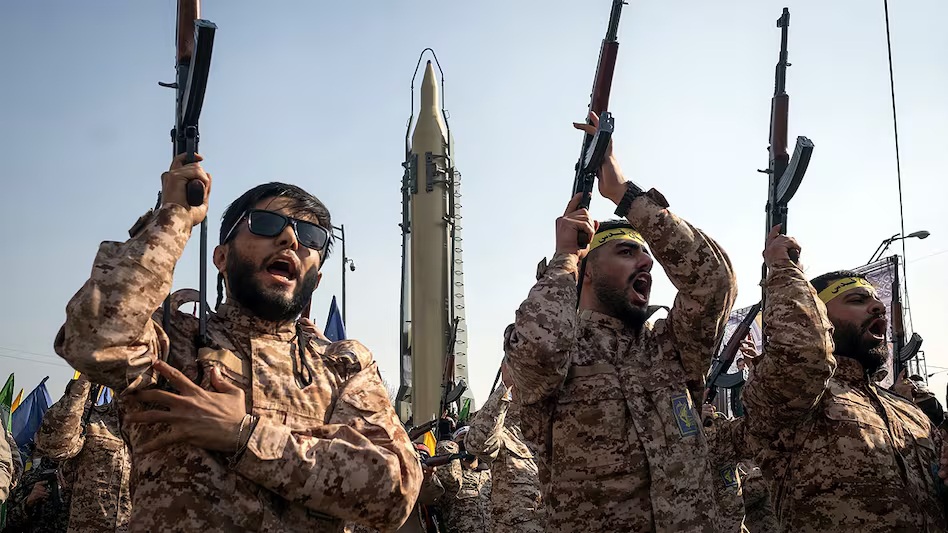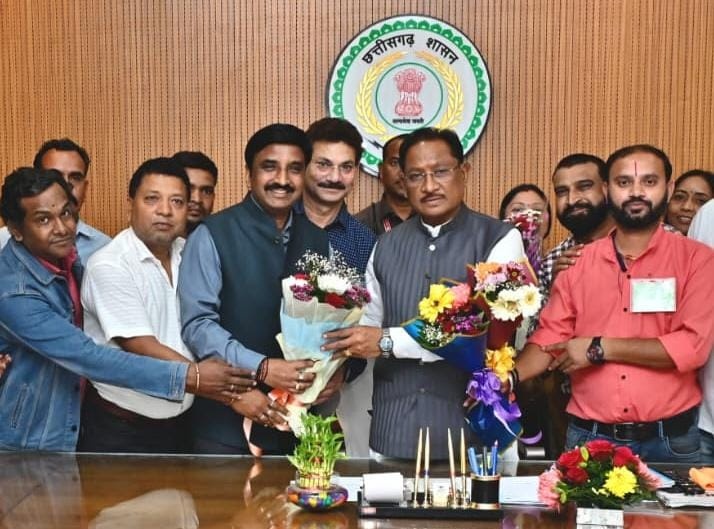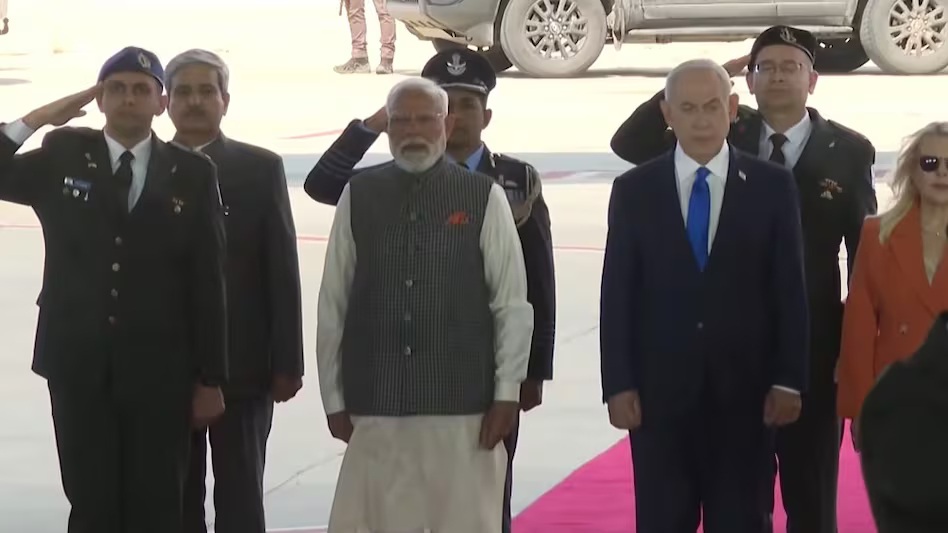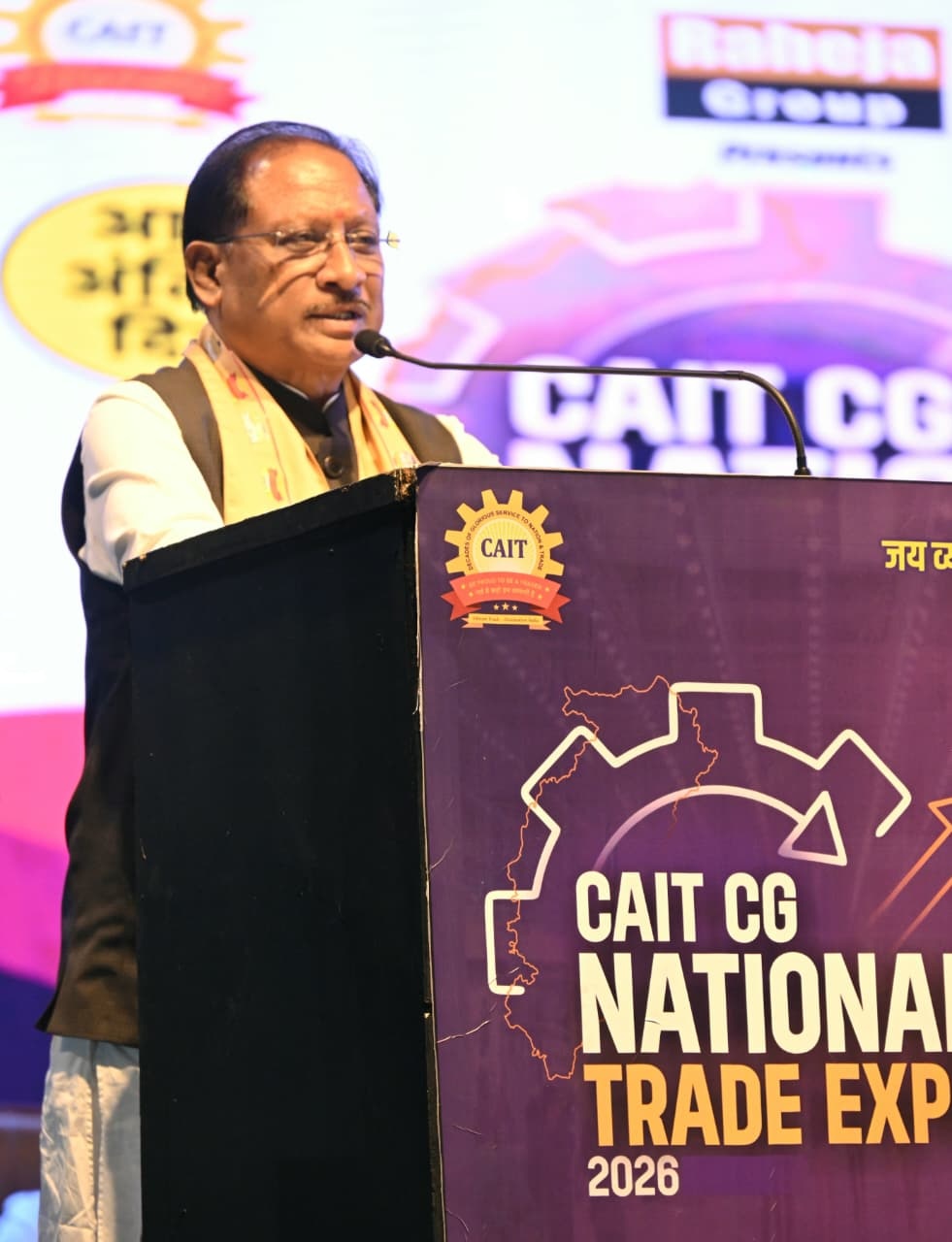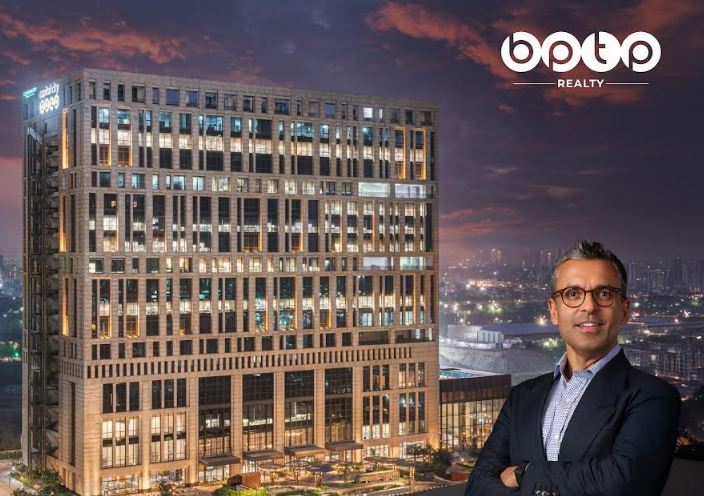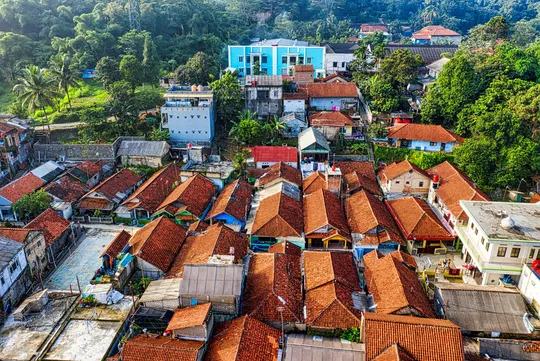
How did Indonesia become the world’s largest Muslim-majority country? (Photo: Pexels)
Indonesia is a country of 17 thousand islands and is spread between the Indian and Pacific Ocean. Hindu-Buddhist culture developed here with the arrival of Indian traders. Later, Islam took root here through Arab traders.
17 thousand islands of South-East Asia, which are spread over 3 thousand miles cutting across the Pacific and Indian Ocean. The distance is so much that the distance from London to Tehran pales in comparison. The ash of the volcano that erupted millions of years ago made the soil fertile here. Then forests flourished and these islands got shape. With time human settlements started to settle.
The initial inhabitants here were hunters, who showed the way to these islands to the Austronesian nomads. Austronesians, that is, the inhabitants of South-East Asia, were adept at determining directions by looking at the stars. They brought with them agriculture, tools and culture. This place was an important part of the maritime Silk Road even before it had a name.
The Indians who first set up their camp here established an empire. Kings ruled over different islands. Hindu and Buddhist temples were built. Centuries passed and then one day Arab traders arrived. The interesting thing is that the swords remained in the sheath, nor was there any bloodshed. Islam gradually made such inroads here that today this island is known as the country with the largest Muslim population in the world. Today we will talk about Indonesia, the country with the largest Muslim population in the world.
Arrival of Indian traders
A plateau surrounded by volcanoes amidst the clouds, this is Dieng of Java Island of Indonesia. Which is known for its ancient temples with high peaks. However, these temples were not always here. This area of Dieng was once the abode of holy spirits. The local people used to worship ‘Sang Hyang Kersa’ as their protector. But the story changed with time. When Indian traders arrived here, they brought not only goods but also their culture, traditions, and ideology. They kept the concept of gods and kings here. Completely different from the local traditions. Because earlier these islands were ruled by tribes. Hindu traders dreamed of establishing an empire on the fertile land of Java.
Related news
PM Modi’s visit to France, Rafale-M and Scorpene submarine deal to be sealed!
Joint production, offer of help in AMCA project, yet why is India silent on Russia’s Su-57 offer?
Himanta vs Gaurav Gogoi: Such a battle to defeat each other, in which now the target is on wives
How powerful is India’s army compared to China and how far ahead of Pakistan?
>
Advertisement
The locals were also influenced by them. Gradually, the area that was once home to holy spirits was filled with temples of Lord Shiva, Vishnu, and Buddha. In this sequence, Borobudur, the world’s largest Buddhist temple, and Hindu temples like Prambanan were built. During that period, the courts of Hindu kings were filled with poets, priests, and scholars, who used to tell stories of the battle between gods and demons. During this time, Indian culture was flourishing in Java as well as on Indonesia’s largest island Sumatra. Here the Srivijaya Empire arose, which was the center of Buddhism. Overall, the rule of Hindu and Buddhist empires continued on the coast of Java and Sumatra of Indonesia for 1500 years. But in the meantime, another religion was emerging in Western Asia.
How did Islam enter Indonesia?
After the death of Prophet Muhammad in the 7th century in Arabia, the exercise to spread Islam around the world began. Caliphs took over this responsibility and trade became the medium. By the 8th century, Islam had reached North Africa, Central Asia, Southern Europe and the Middle East. This is also called the Golden Age of Islam. The fragrance of spices attracted Arab traders to the coast of Indonesia. At that time, there was a huge crowd of traders from Persia and India and trade was at its peak. These Muslim traders understood the importance of the coast very well. While discussing business with the residents, the evening gathering started.
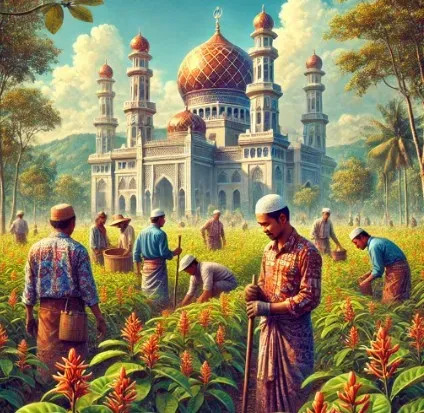
The story of the spread of Islam in Indonesia (Source: AI Generated)
While Arab traders rested on these shores, the people around started talking to these foreigners. In return, they would tell them stories of Prophet Muhammad and his teachings. These stories started resonating deeply in the coastal communities. The power of Islam was such that the local people were ready to convert. There were two reasons. Faith and better relations with the powerful Muslim trade network. One by one, mosques started replacing Hindu-Buddhist temples in small coastal kingdoms.
Who was the founder of Islam in Indonesia?
Similarly, there was a kingdom named Samudra-Pasai in North Sumatra. This coast was a port connecting the Indian Ocean to East Asia. Arab traders often came here during the 13th century. Along with the trade of spices and clothes, they started giving information about the qualities of Islam to the people here. The teachings of monotheism i.e. belief in one God, justice and emphasis on community were being taken root in the hearts of the people. All this was completely different from Hindu-Buddhist beliefs. Nevertheless, the kings found a way to rule, trade and diplomacy in it.
Influenced by these things, the king of the coast, Mara Silu, decided to adopt Islam. By converting to Islam, he created a new identity as a Muslim ruler. And was named Sultan Malik Al-Salih. After this, a glimpse of Islamic principles was seen in his royal activities. And the new religion expanded. After the death of Sultan Malik Al-Salih, the place where he was buried, there is a date of 1297 AD on the gravestone. Which is one of the oldest inscriptions present on the coast. Historians consider him the founder of Muslim religion in Indonesia.
The story of Wali Songo
One by one, Islam started spreading on other coasts of Indonesia as well. Which became the reason for the fall of centuries-old empires. Java was ruled by the Majapahit Empire for a long time. But a solid phase of Islamization was seen in the 15th and 16th centuries. When Wali Songo came forward to spread Islam. Wali is an Arabic word which means ‘friend of God’, while Songo is a Javanese word meaning ‘9’. These 9 clerics are credited with teaching and spreading Islam in Java.
The 9 clerics who promoted Islam in Java were – Ulama Ampel, Ulama Malik Ibrahim, Ulama Giri, Ulama Bonang, Ulama Drajat, Ulama Muria, Ulama Kudus, Ulama Kalijaga, Ulama Gunung.
Read this also – Modi had said something to Jinping in Indonesia, now why did the government reveal it after 8 months?
Story of change through puppet
Sunan Kalijaga was one of the Wali Songo. He was considered very wise. Why? We will understand that from the story ahead. In those times, the game of shadow puppetry was very famous in Java. Which we also know as ‘shadow puppetry’. The folk art of telling a story by lighting a lamp in the dark and using the shadow of the body or puppet. This was quite famous on the coast. Mostly stories from the Mahabharata and the Ramayana were told through this art. Seeing all this, Kalijaga realized that to reach people’s hearts, it is necessary to communicate their culture. So why not make this art the medium?
Kalijaga adopted a trick. Instead of falsifying the stories of all the Hindu epics, he worked to convey his teachings to the people. Gradually, Islamic stories started being told through puppets. The people gathered on the coast under the open sky at night and they themselves did not know when they came close to conversion through entertainment. To this day in Indonesia, Sunan Kalijaga and the rest of the Wali Songo are remembered. Local people go to their graves to offer Ziyara (prayers).
In those days, the spread of Islam on the coast of Indonesia is also mentioned in books. You must have heard the name of Ibn Battuta. A Moroccan traveler, who set out to travel in the 14th century. In about thirty years, he had traveled most parts of Africa and almost the whole of Asia. During this time, while roaming around, he reached the Samudra-Pasai Sultanate, which is on the north-eastern tip of Sumatra. In his book Rihla (The Journey), he has told,
‘As soon as my ship reached the coast of Samudra-Pasai, I saw that there was a lot of bustle at the port. There was a crowd of traders from far-off countries like Arabia, India, Persia. Their ships were laden with spices, clothes and precious goods. The Sultan there was ‘Al-Malik Al-Zahir’. His behavior was fair. Travelers and scholars were welcomed in the Sultan’s court. Where everyone was free to express their views.’
Ibn Battuta further tells that the Sultan was a staunch supporter of Islam. Religious gurus used to debate on theology and law in his court. And many youth used to gather to learn from them. Battuta also participated in the religious events here. He saw that Islam had taken deep roots here. Respect for the Quran was clearly visible from the king to the common people.
When the Dutch took over the coast
The coasts of Indonesia were so important commercially that sellers from far off countries kept a keen eye on them. The Portuguese tried to capture the spice trade here but could not stay for long. The Netherlands replaced them. By the 16th century, the Netherlands had made inroads on the Maluku coast here. The method was the same, first entry through trade. And then they subjugated the kings and became kings themselves. But their way of ruling was harsh. Farmers were oppressed. The prices of spices started skyrocketing. Due to this, the prices of spices started skyrocketing.
With this, in the 19th century, the reach of the Dutch (living in the Netherlands) had spread to many coasts including Sumatra, Java.
The spark of independence arose from the dense forests
On the other hand, voices of rebellion were being raised in the northern region of Sumatra, ‘Aceh’. An army was being prepared in the dense forests. A woman who supported Islam was behind this. Named ‘Cut Nyak Dhien’. Who promoted jihad (i.e. collective struggle) among the people. She died fighting for her land. Do you know that once the British also tried to camp on these coasts but the Dutch defeated them too.
During this period, there was a rebellion against the Dutch in many parts of Indonesia. In return, the method of divide and rule was being adopted. But by then the education and new ideas that had arrived from Europe had knocked on Indonesia. This is where the foundation of the freedom movement was laid. That is, the war for independence of Indonesia.
Also read – G20 countries: Story of Indonesia, which was slave to three countries and got independence just 2 years before India
Sharia law or secular republic?
The city was not even settled yet and the looters were ready. During the Second World War, Japan conquered Indonesia. The local people were so oppressed that they started seeing hope in the Japanese. But soon this was dashed as the Japanese occupation proved to be even more harsh. After the defeat in the Second World War in 1945, Japan’s rule on the coast also ended. After this, the flame of independence started burning inside the Indonesian leaders. Leaders like Sukarno and Mohammad Hatta declared independent Indonesia on 17 August 1945.
However, its seed was sown in the late 1940s itself. Many leaders gathered to decide on the new nation. Many religions were flourishing on the island. In which Islam was the majority religion. The question was whether the new nation should be an Islamic state or a secular republic? Some leaders envisioned a nation under Sharia law, arguing that Islam had laid the foundation for the struggle against colonial powers. The other group was a secular state, emphasizing Indonesia’s diversity – its Hindu, Muslim, Buddhist, Christian, and animist people.
When Indonesia declared independence in 1945, it emerged as a nation that reflected unity in diversity. The country’s official motto became Bhinneka Tunggal Ika, meaning unity in diversity. Today, Indonesia has a presidential system like the United States, with the president as the head of state. And so the world’s most populous Muslim country became synonymous with diversity.
![]()



